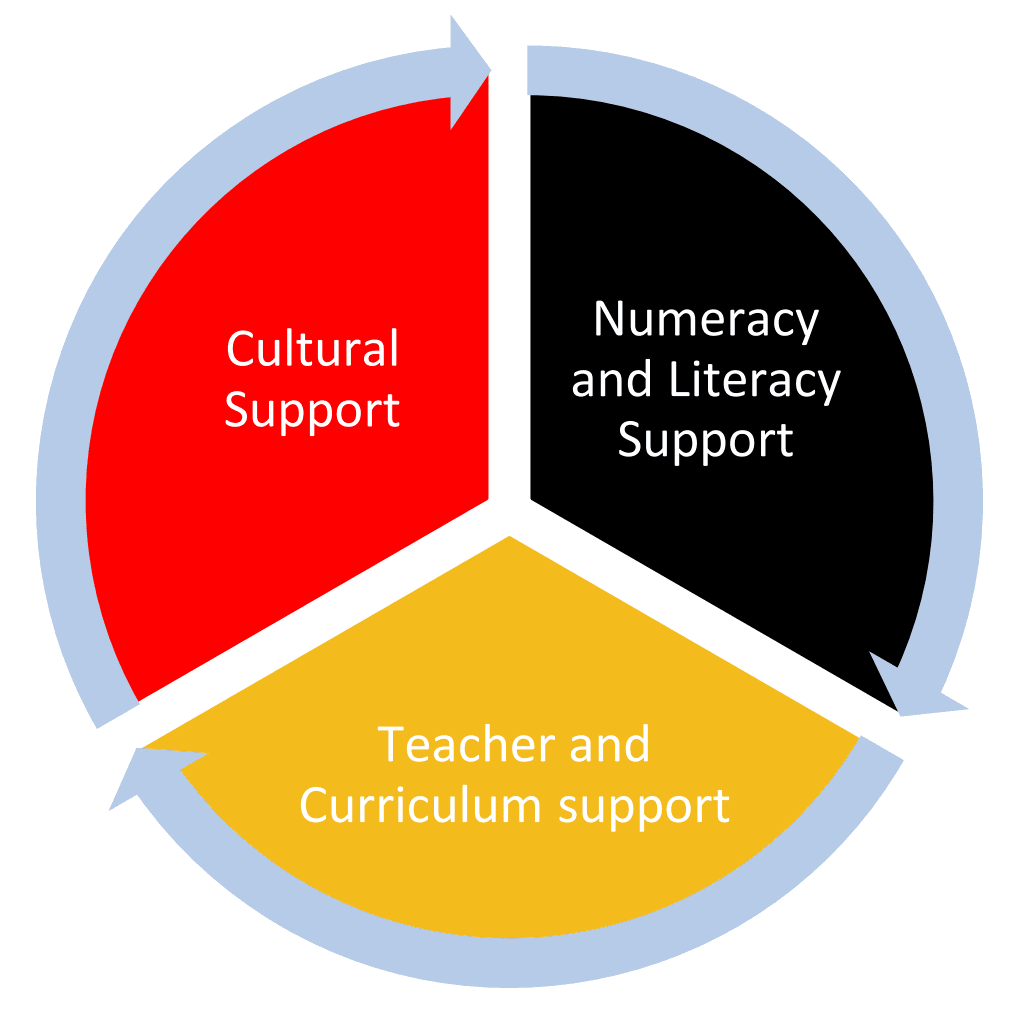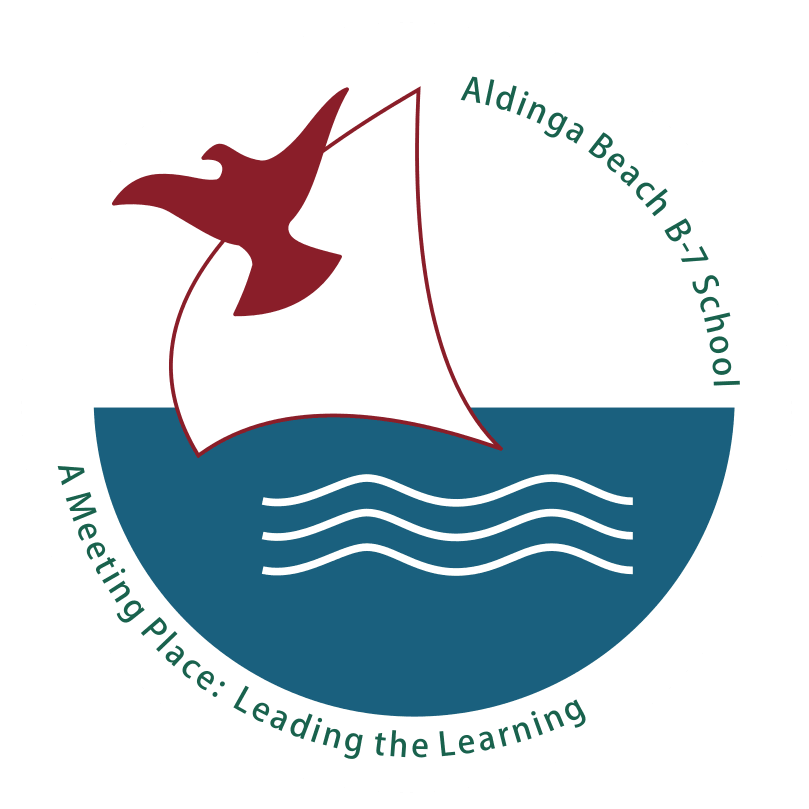About
Aboriginal EducationMessage Stick
Please Welcome Porsche Harbin and Sage Young as our new Aboriginal Education Teachers.
Porsche works Monday and Sage works Thursday and Friday
Acknowledgement of Country
Aldinga Beach B-7 School acknowledges that we are meeting on the traditional Country of the Kaurna people of the Adelaide Plains and pays respect to Elders past and present. We recognise and respect their cultural heritage, spiritual beliefs and relationship with the land. We acknowledge that they are of continuing importance to the Kaurna people living today. And we also extend that respect to other Aboriginal language groups and other First Nations.
Always was and always will be Kaurna Land
Cultural Engagement Strategy
GOAL: To provide safe cultural and personable engagement opportunities for all of our 57 Aboriginal and/or Torres Strait Islander students. In order to best support students and teachers, to gain clarity and coherence for all, and to make opportunity for self-efficacy, regulation and effective learning.
HOW:
Cultural and Personal Engagement
All students have cultural and personable engagement with the Aldinga Aboriginal Education Team as well as the Culture Room space.
Inclusion
All students will have had opportunity to get to know someone in the team, to have their voice included and to be included on the student Map.
One Plan
All students will have a One Plan reviewed or created which includes, Teacher, Student, Parent and Culture Team input.
Parent Inclusion
All parents of students will have at least one member of the team to have touched base with them at least once by phone or in person to see if there is anything they need, if they’d like to meet or if they have anything they’d like to discuss.
OUR TEAM
The Aboriginal Education Team (Culture Mob) at Aldinga Beach B7 School is Krystle Pearce, Bekki Mollison and Tessa Stanley as Aboriginal Community Education Officers and Sage Young as the Aboriginal Education Teacher.
The ACEO role is to:
- Develop and maintain relationships with First Nations students and families.
- Promote First Nations Community Voice.
- Provide advice on cultural diversity of First Nations cultural groups.
- Work with teachers to implement First Nations perspectives in classrooms and the curriculum.
The AET role is to:
- Support closing the gap through literacy and numeracy intervention.
- Support the implementation of First Nations perspectives in the curriculum.
- Work alongside classroom teachers with the learning needs of First Nations students.
Programs the Culture Mob currently run include:
- Yarning circles for families.
- Malpa (Young Doctors) for students.
- School RAP committee.
The AET Role is specifically aimed at Closing the Gap and has 3 main support focus areas:

Further information on the Aboriginal Education Teacher’s Role can be found here.
Reconciliation Action Plan
The Department of Education and our school has a deep responsibility to take action towards Reconciliation. This is at the heart of our practice. This also links with The United Nations Declaration on the Rights of [Aboriginal and Torres Strait Islander] Peoples, in particular articles 14 and 15. Our Site Based Reconciliation Action Plan also considers The Children’s Centre and OSHC.
Article 14-
- [Aboriginal and Torres Strait Islander] peoples have the right to establish and control their educational systems and institutions providing education in their own languages, in a manner appropriate to their cultural methods of teaching and learning.
- [Aboriginal and Torres Strait Islander] individuals, particularly children, have the right to all levels and forms of education of the State without discrimination.
- States shall, in conjunction with [Aboriginal and Torres Strait Islander] peoples, take effective measures, in order for indigenous individuals, particularly children, including those living outside their communities, to have access, when possible, to an education in their own culture and provided in their own language.
Article 15
- [Aboriginal and Torres Strait Islander] peoples have the right to the dignity and diversity of their cultures, traditions, histories and aspirations which shall be appropriately reflected in education and public information.
- States shall take effective measures, in consultation and cooperation with the indigenous peoples concerned, to combat prejudice and eliminate
discrimination and to promote tolerance, understanding and good relations among indigenous peoples and all other segments of society.
(The United Nations Declaration on the Rights of [Aboriginal and Torres Strait Islander] Peoples)
Our commitment
Parent Inclusion
Parent input is vital for our Culture Room to be effectively supporting our children and community. If you are a parent of our Aboriginal/ Torres Strait Islander students then and wish to have an input please get in contact here.
Aboriginal Strategy
- Play is the Way is an approach to social and emotional learning that utilises practical activities and experiences to develop students’ positive dispositions and interpersonal skills. Teachers will intentionally design and implement games and challenges that promote experiential learning to develop positive friendship skills, empathy and self-regulation. Our school’s behaviour Code of Conduct is based on the key Play is the Way principles:
- Treat others as you would like them to treat you
- Be Brave – Participate to progress
- Pursue your personal best no matter who you work with
- Have reasons for the things you say and do
- It takes great strength to be sensible
Our Programs
- The Health Curriculum is taught by a specialist teacher as one of our NIT subjects. The Health program encompasses elements of the Child Protection Curriculum as well as Program Achieve – You Can Do It and Worrywoos.
Calendar
Upcoming Events & Activities
11
March
Nunga Tag
9:00am – 2:30pm
South Adelaide Football Club
Upper Primary Students
Permission Notes due: Monday 9th
27
March
MALPA & Friends of Aldinga Scrub Projects
Info Sessions
8 & 9
April
Student Free Days
No staff on site due to training

